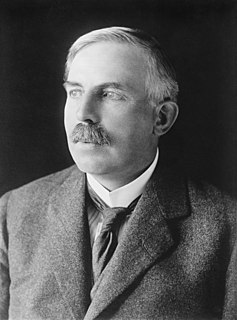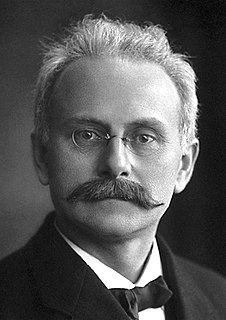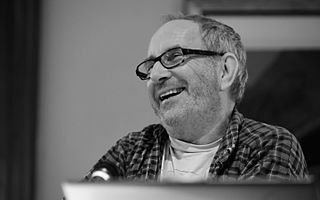A Quote by Michio Kaku
Physicists are made of atoms. A physicist is an attempt by an atom to understand itself.
Related Quotes
Every atom is trying to go and join itself to the next atom. Atoms after atoms combine, making huge balls, the earths, the suns, the moons, the stars, the planets. They in their turn, are trying to rush towards each other, and at last, we know that the whole universe, mental and material, will be fused into one.
The story is told of Lord Kelvin, a famous Scotch physicist of the last century, that after he had given a lecture on atoms and molecules, one of his students came to him with the question, "Professor, what is your idea of the structure of the atom." "What," said Kelvin, "The structure of the atom? Why, don't you know, the very word 'atom' means the thing that can't be cut. How then can it have a structure?" "That," remarked the facetious young man, "shows the disadvantage of knowing Greek."
All the green in the planted world consists of these whole, rounded chloroplasts wending their ways in water. If you analyze a molecule of chlorophyll itself, what you get is one hundred thirty-six atoms of hydrogen, carbon, oxygen, and nitrogen arranged in an exact and complex relationship around a central ring. At the ring's center is a single atom of magnesium. Now: If you remove the atom of magnesium and in its exact place put an atom of iron, you get a molecule of hemoglobin. The iron atom combines with all the other atoms to make red blood, the streaming red dots in the goldfish's tail.
From the results so far obtained it is difficult to avoid the conclusion that the long-range atoms arising from collision of alpha particles with nitrogen are not nitrogen atoms but probably atoms of hydrogen, or atoms of mass 2. If this be the case, we must conclude that the nitrogen atom is disintegrated under the intense forces developed in a close collision with a swift alpha particle, and that the hydrogen atom which is liberated formed a constituent part of the nitrogen nucleus.
Man is slightly nearer to the atom than to the star. ... From his central position man can survey the grandest works of Nature with the astronomer, or the minutest works with the physicist. ... [K]nowledge of the stars leads through the atom; and important knowledge of the atom has been reached through the stars.
In the world of the very small, where particle and wave aspects of reality are equally significant, things do not behave in any way that we can understand from our experience of the everyday world...all pictures are false, and there is no physical analogy we can make to understand what goes on inside atoms. Atoms behave like atoms, nothing else.
Chemists are, on the whole, like physicists, only 'less so'.They don't make quite the same wonderful mistakes, and much what they do is an art, related to cooking, instead of a true science. They have their moments, and their sources of legitimate pride. They don't split atoms, as the physicists do. They join them together, and a very praiseworthy activity that is.


































